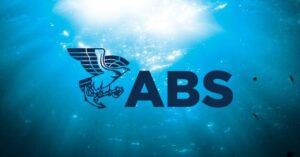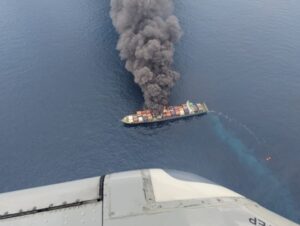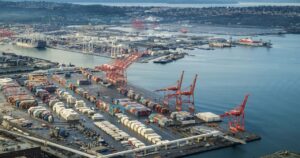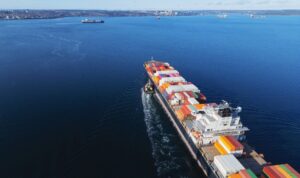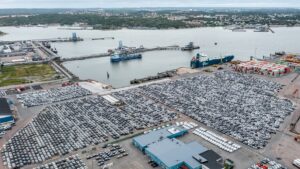A.P. Moeller – Maersk (Maersk) has announced that its entire fleet of vessels will participate in the global Voluntary Observing Ship (VOS) programme, an initiative to research global weather patterns and climate change.
In a statement, Maersk said it already has many vessels contributing to the VOS programme, it plans to commit all of them by the end of 2020.
The data they will record will help meteorologists create more accurate weather and storm forecasts, and also in the creation of atmosphere-ocean models what will help scientists better understand climate change.
“As a global container logistics company, our vessels form a vital role in keeping supply chains moving safely and timely,” said Aslak Ross, Maersk’s Head of Marine Standards.
“Helping weather forecasting and climate science advance makes great sense to us, since both of these areas affect our operations in various ways.”
While scientists have been collecting and sharing weather and ocean condition observations for over 150 years around the world, technological advances have significantly increased the amount of information which can be shared.
A typical VOS records and transmits observations manually, with a vessel crewmember reading data from instruments onboard the ship, or in some cases through automated weather stations (AWS). The data is then sent to the various National Meteorological Services for use in weather prediction models and to monitor actual conditions at sea.
To obtain more data with higher precision, the first five Maersk vessels participating in the VOS program are equipped with a more advanced type of AWS, called the European Common Automatic Weather Station (EUCAWS).
The EUCAWS system automatically collects data on atmospheric pressure, air temperature and relative humidity and transmits them hourly to designated research stations. By the end of 2020, a total of 50 such stations are planned to be operational on Maersk vessels, providing the largest fleet of AWS from a single company.
While over 3000 ships are involved in the VOS program, overall participation has declined in recent years due to the reduction in the global commercial fleet’s financial and crew resources.
New technologies such as AWS and electronic logbooks, however, have led to an increase in the quantity and quality of observations from each vessel. As the world’s largest container ship fleet operator, Maersk will be making a significant contribution to improving the amount and quality of data available to the study.
“Climate change is one of the biggest challenges facing the global community, impacting our business as well as the societies and customers we serve and partner with in enabling trade,” Ross continued.
“We have an ambitious strategy to decarbonize our fleet of vessels by 2050 and as we execute this plan, we are proud to have our vessels and crews help researchers in gaining a better understanding of this key global challenge.”
In the United States, Maersk has worked actively with the VOS sponsor, the U.S. National Oceanic and Atmospheric Administration (NOAA), on a variety of environmental programs. These have included testing air quality and vessel stack emissions and whale protection programs on both coasts.
“We are pleased to be able to expand our long-term work with NOAA to help gather high quality data to improve understanding of global weather and climate conditions.
“This complements our work here in the US with NOAA on air quality, vessel emissions and protecting endangered whales,” said Maersk North America’s Director of Environment and Sustainability, Lee Kindberg.


